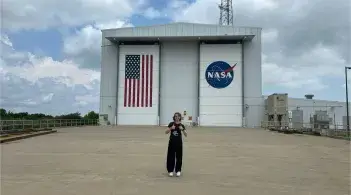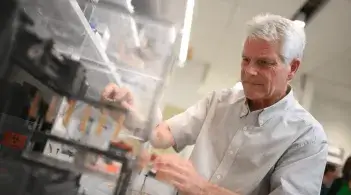The Vermont Space Grant Consortium (VTSGC) is part of a national network of colleges and universities connecting NASA with the educational and research institutions of the United States. Here in Vermont, VTSGC works to expand opportunities for Vermonters to understand and participate in NASA's aeronautics and space projects by supporting STEM education, research, and public outreach efforts. For college students, VTSGC funds NASA internships at NASA Centers or virtually, graduate fellowships to support students doing NASA-relevant research, and research experiences for undergraduates pursuing degrees in science, technology, engineering and mathematics (STEM). For faculty, VTSGC provides several research grant mechanisms ranging from small pilot grants to grants that require connections with NASA personnel. Beyond our universities, VTSGC also provides funds and resources for informal education and public engagement through our museum, public library, and industry partners. If you are interested in aerospace, STEM, or this universe we call home, we want to help you achieve your career goals!
The Vermont Space Grant Consortium is a NASA partner dedicated to connecting Vermonters interested in science, technology, engineering, and mathematics with opportunities to work on NASA projects or alongside NASA professionals. We offer student research experiences, graduate fellowships, library grants, and more.





